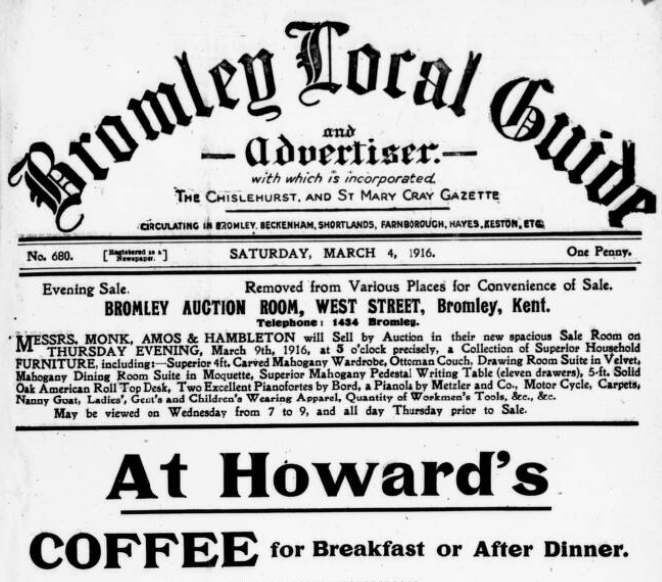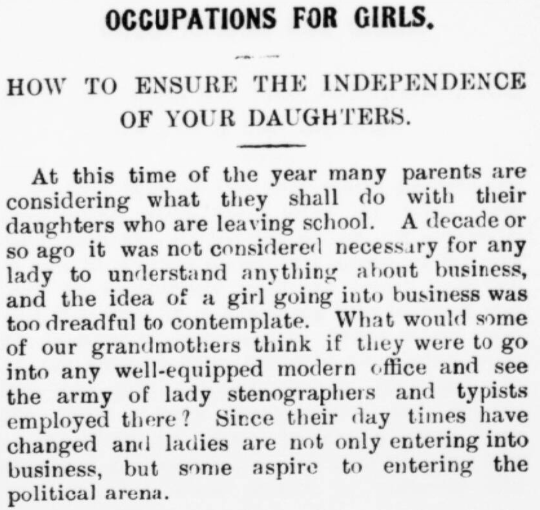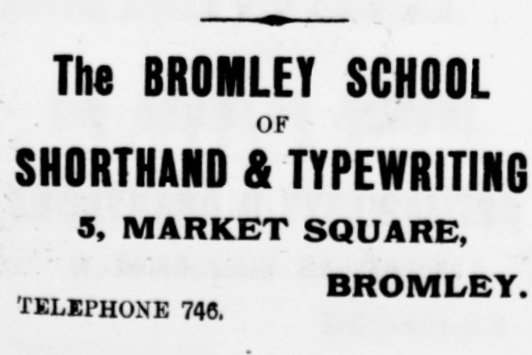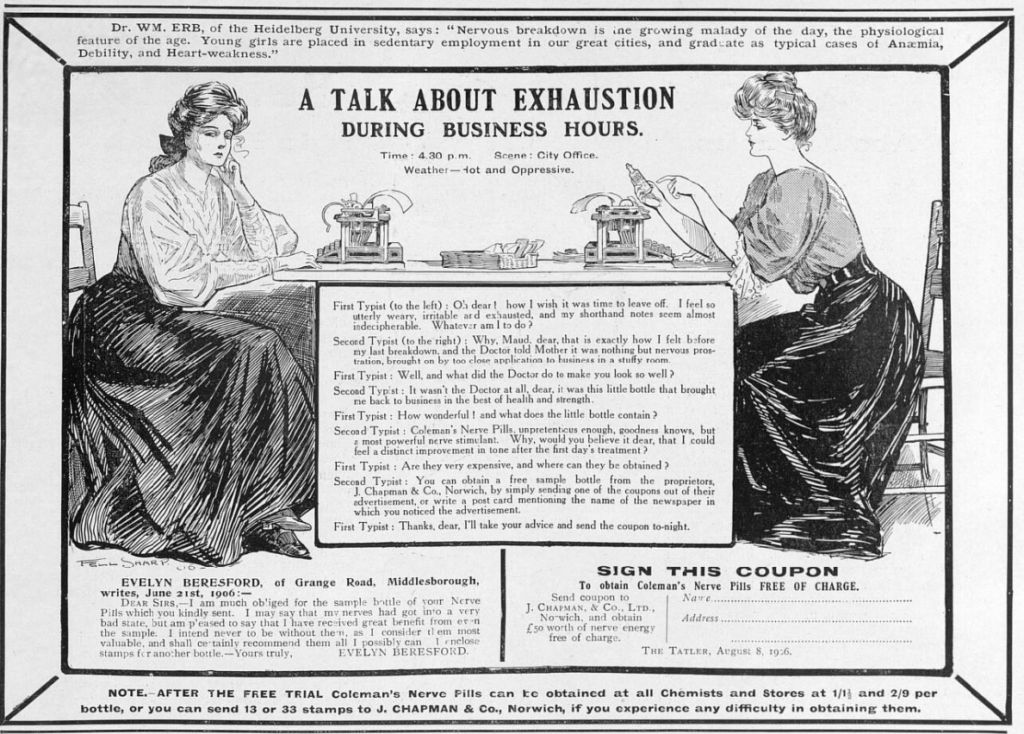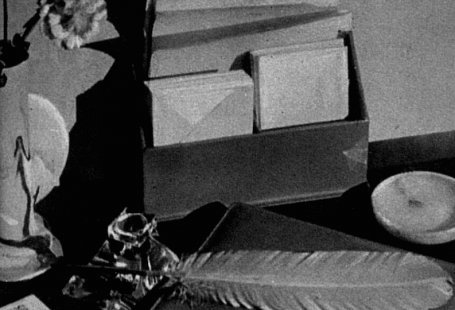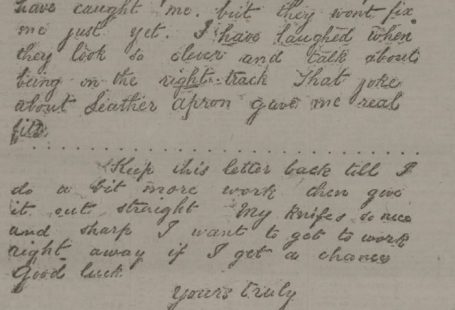This week at The Archive we have been extremely busy, as we bring you one brand new title, namely the Bromley Local Guide and Advertiser, and updates to 67 of our existing titles from the United Kingdom and beyond. That’s not it, we’ve also surpassed the 89 million page mark, with 307,800 brand new pages added in total, as we continue to augment our collection of historical newspapers, with our updates this week spanning nearly three centuries of headlines.
And so, read on to discover more about our new title of the week, and also to learn which of our existing titles we have updated. From Matlock to Motherwell, from Pontypool to Portsmouth, from Watford to Waterford, we have added new pages to our newspapers from across Great Britain and Ireland, and even further afield.
Meanwhile, using our brand new title of the week, the Bromley Local Guide and Advertiser, we’ll also explore how careers as shorthand typists were being opened up to young women in the early 20th century.
Register now and explore the Archive
So without any further ado, let’s explore this week’s new title, the Bromley Local Guide and Advertiser. This lovely local title was established in 1903 in the market town of Bromley. Originally a part of Kent, Bromley is now part of Greater London and forms the London Borough of Bromley.
The Bromley Local Guide and Advertiser, meanwhile, appeared every Saturday and circulated through Bromley, Beckenham, Shortlands, Sundridge Park, Grove Park, and Bickley. Costing just one penny, its sixteen pages were filled with primarily local news.
For example, the title printed the latest from the Bromley Borough Council and the Beckenham Urban District Council, whilst also updating readers on news from the schools in the area. Furthermore, the Bromley Local Guide and Advertiser had a particular focus on crime in the area, with articles like ‘Shoplifting Charges at Bromley,’ and reports on ‘Local Police Cases’ appearing with in its pages.
An entertaining read, the Bromley Local Guide and Advertiser furnished its readers with ghost stories, alongside details of local sports matches, with special attention paid to both football and cricket. Finally, the paper had an eye on practicality, furnishing its readers with the ‘local omnibus timetables.’
That’s it from our new title this week, but with 67 of our existing titles updated this week there’s still plenty for you to explore. A particular highlight this week are the new years we have added to cinema industry title the Kinematograph Weekly, whilst leading the charge with the most updated pages over the last seven days is Shropshire’s Wellington Journal, which sees over 38,000 brand new pages join its ranks.
We tour the United Kingdom and Ireland this week with the updates to our existing titles. New pages join our Welsh title the Pontypool Free Press, whilst we’ve updated eight titles from Scotland, including adding pages from the early 18th century to the Edinburgh Courant. Meanwhile, across the Irish Sea, we’ve updated seven of our titles from Northern Ireland, whilst we’ve updated two of our titles from the Republic of Ireland, namely the Evening News (Waterford) and the Farmer’s Gazette and Journal of Practical Horticulture. Finally, we travel to the Caribbean to add a new year to the Mirror (Trinidad & Tobago).
‘How To Ensure The Independence of Your Daughters’ – Career Advice from 1910
Whilst browsing the pages of our new publication the Bromley Local Guide and Advertiser, we came across an intriguingly titled article, ‘How To Ensure The Independence of Your Daughters.’ Published by the paper on 1 January 1910, this piece addressed a quandary that parents may be facing in the New Year, as they considered ‘what they shall do with their daughters who are leaving school.’
The Bromley Local Guide and Advertiser then went on to address the shift in attitudes with regards to careers that young women could now respectably undertake:
A decade or so ago it was not considered necessary for any lady to understand anything about business, and the idea of a girl going into business was too dreadful to contemplate. What would some of our grandmothers think If they were to go into any well-equipped modern office and see the army of lady stenographers and typists employed there? Since their day times have changed and ladies are not only entering into business, but some aspire to entering the political arena.
Furthermore, the article continued by observing how ‘as Shorthand-Typists, girls command the field, and many responsible and lucrative positions are available for the efficient.’ But where could young women be trained as efficient shorthand typists?
The Bromley Local Guide and Advertiser had the answer, namely the Bromley School of Shorthand and Typewriting. Indeed, this piece in the Bromley paper now revealed its true form as a type of advertorial for the school, which praised ‘the thoroughness of their tuition and careful individual attention given to every pupil.’ The Bromley School of Shorthand and Typewriting came ‘strongly recommended’ by the paper, with the institution’s training allotting ‘independence’ to the daughters of Bromley’s parents, ‘whether they wish to place them in business, or private secretarial posts.’
On 9 September 1911 the Bromley Local Guide and Advertiser was back with another advertorial for the Bromley School of Shorthand and Typewriting. Again, the piece looked at the shift of attitudes towards women working in an office environment, observing how:
Not many years since the employment of girls in offices was looked upon somewhat as an experiment, but the ability displayed by many of them quickly proved their suitability for office work, and now but few offices of any pretentions can be found that have but one or more regularly employed as confidential clerks, shorthand-typists, bookkeepers, or in other responsible positions.
This time, the article in the Bromley Local Guide and Advertiser observed how these positions carried ‘with them salaries far larger, and hours of employment far less, than are paid to girls of the same ages in most occupations.’ But, of course, in order for these more advantageous salaries to be received, ‘the most careful training’ was necessary. This was where the Bromley School of Shorthand and Typewriting came in.
The Bromley Local Guide and Advertiser now revealed how it was a Miss W.A. Shafto who ran the school, ‘the first of its kind in Bromley and district.’ Miss Shafto’s aim was ‘to thoroughly train each pupil so that she is able to obtain, and keep – an important point – one of the better paid posts which are open to girls in hundreds of offices and business houses all over the country.’
By way of testimony to Miss Shafto’s abilities and the teaching available at the Bromley School of Shorthand and Typewriting, the Bromley Local Guide and Advertiser pointed to the long list of alumnae undertaking ‘well-paid positions.’ Finally, the piece encouraged ‘parents and guardians of girls who are contemplating a business career’ to consult with Miss Shafto, a ‘recognised authority on the subject.’ In order to do so, interested parties were directed to write to Miss Shafto at the school, upon which an interview could be arranged.
Discover more about the Bromley School of Shorthand and Typing, women’s occupations in the 20th century, and much more besides, in the pages of our Archive today.
New Titles
| Title | Years Added |
| Bromley Local Guide and Advertiser | 1910-1919, 1930 |
Updated Titles
This week we have updated 67 of our existing titles.
You can learn more about each of the titles we add to every week by clicking on their names. On each paper’s title page, you can read a free sample issue, learn more about our current holdings, and our plans for digitisation.
You can keep up to date with all the latest additions by visiting the recently added page. You can even look ahead to see what we’re going to add tomorrow.



